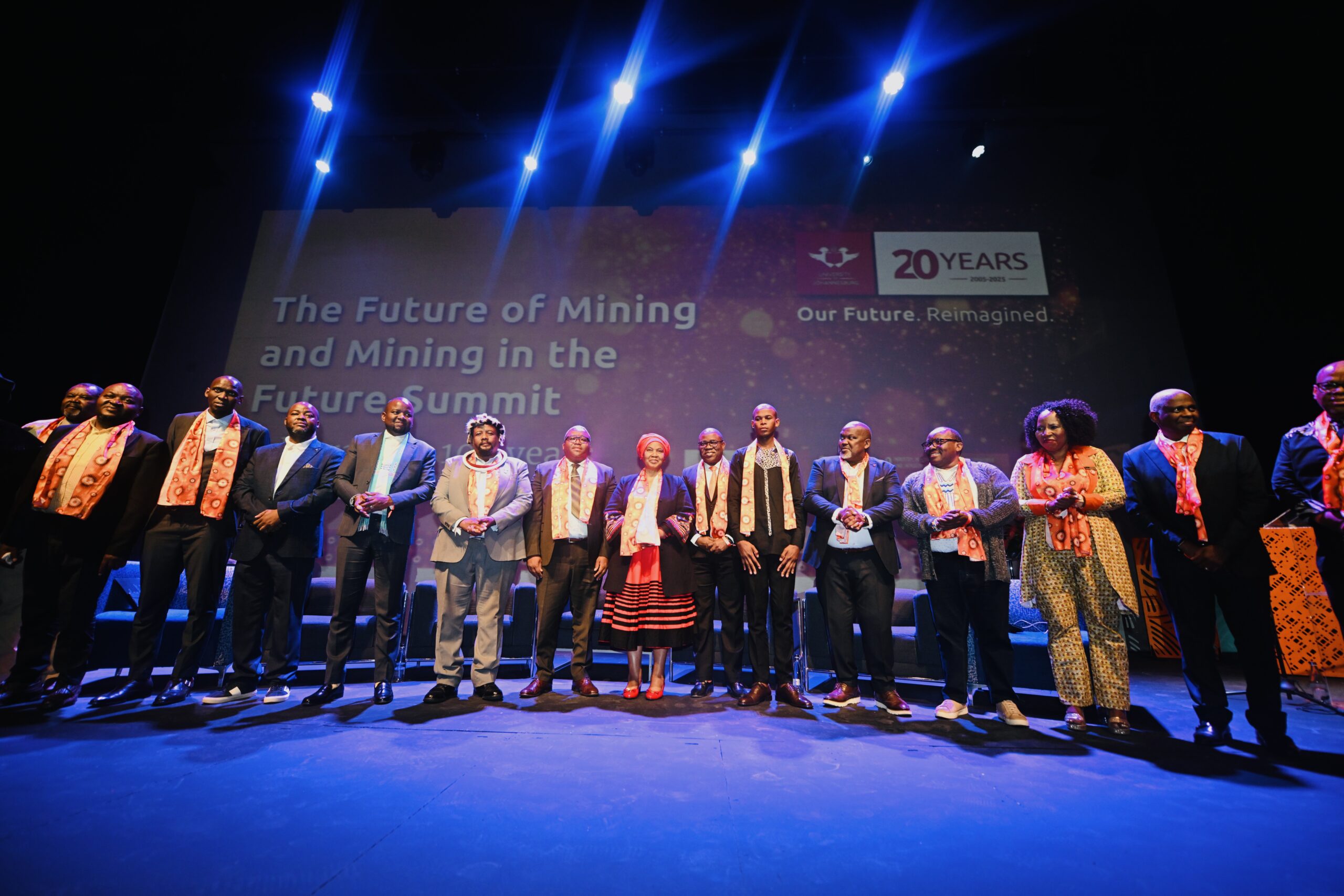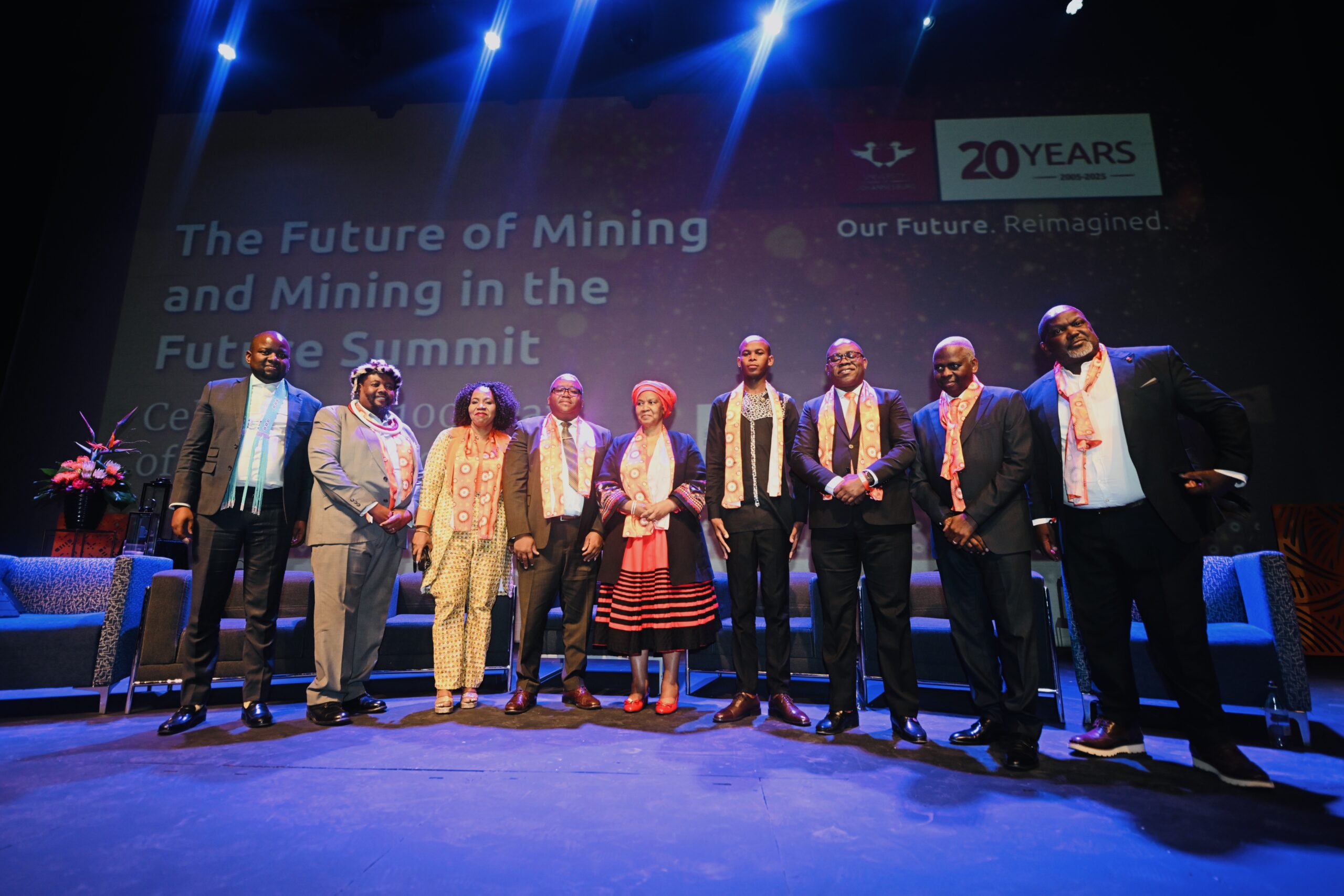Mining needs to benefit the people where mines gain their riches.
This was the sentiment expressed by the traditional authorities that attended the Mining Summit hosted by the University of Johanneburg’s School of Mining. The summit titled ‘The future of Mining and Mining in the Future: Celebrating 100 years of mining education’, saw a unique gathering of industry, academia, policy makers and communities join in on a day filled with robust engagement.

King Silosohlanga ka Dakhile Sigcau, of the amaMpondo East Kingdom, in the Eastern Cape boldly shared his vision his community being in a mutually beneficial relationship with industry.
“I come from the amaMpondo kingdom, an area that is rich in most of the world’s precious metals. I am happy to be here today, learning more about mining and mining education. I will share the wisdom gained here today with my people back home. I am hoping that from the interactions we have here today, meaningful partnerships will be formed with the UJ.”
King Silosohlanga ka Dakhile shared the bold vision that he has for his community: “I hope that one day, from this partnership (with UJ) that a University will be built in my community. I look forward to welcoming mines in our area, and when this happens, I want the mining engineers to be people of our community, the people who operate the machinery, the people who work in that mine, to be from our community. Before I open that land for the use of mines, I want mining companies who want to operate there, to give institutions that will benefit the locals,” the King said.
At present, both the east and the west amaMpondo Kingdoms are the largest source of labour to some of the countries’ largest mines.
Inkosi Lutho Zibi, of the amaHlubi Traditional authority in the North West, used his platform to highlight the need for recognition of the efforts of the traditional authorities as well as the need to uphold the principles of sustainable mining to safe guard the future of communities, after the mines have gone.
Inkosi uZibi shared the story of Napo Matsietsi, an alumni of UJ who is said to have discovered Gold in their area.
“South Africa’s minerals have shaped our history and destiny. For us, amaHlubi who settled over a century ago on mineral rich land, Kwa-Khayakhulu, after migrating from the Eastern Cape, this truth is a lived reality. Looking forward, we hope that our partnership with academia will ensure that African discovers receive due recognition. Equally, that our indigenous knowledge, cultural heritage and intellectual property are tied to the land and are protected for generations to come. In my own heritage, we speak of the borrowed cow. It gives milk, but it is not forever.
One day, the owner will come for it. Minerals are like the borrowed cow. They are finite. Once extracted, they are gone. The only true value lies in what we create with them while they are in our care. We must take into account, sustainable mining into the future,” he said.

Inkosi Monnanyana Mahlangu II, from the amaNdebele Kingdom in Mpumalanga, who represented King Makhosoke Mabhena II, congratulated the University on its 20th anniversary, as well as the mining school’s 100th anniversary.
Inkosi uMahlangu II said what was a priority for the amaNdebele Kingdom, is partnerships.
“We strive for partnerships with anyone who has the best interests of our communities at heart. It wouldn’t make sense to try and align ourselves with entities that are interested only in enriching themselves, and will leave our communities and land in distress after mining has taken place.
Today we heard an anecdote of an individual who had to receive medical care using minerals mined in his own country, in a foreign land. We need to reverse this. Let’s look at beneficiation where the extraction is local, the production is local where we have a full usage of our minerals, locally. Not that we don’t want to export anything, but rather to have a sense of ownership that the whole value chain benefits our societies,” he said.
Watch the full summit below:



